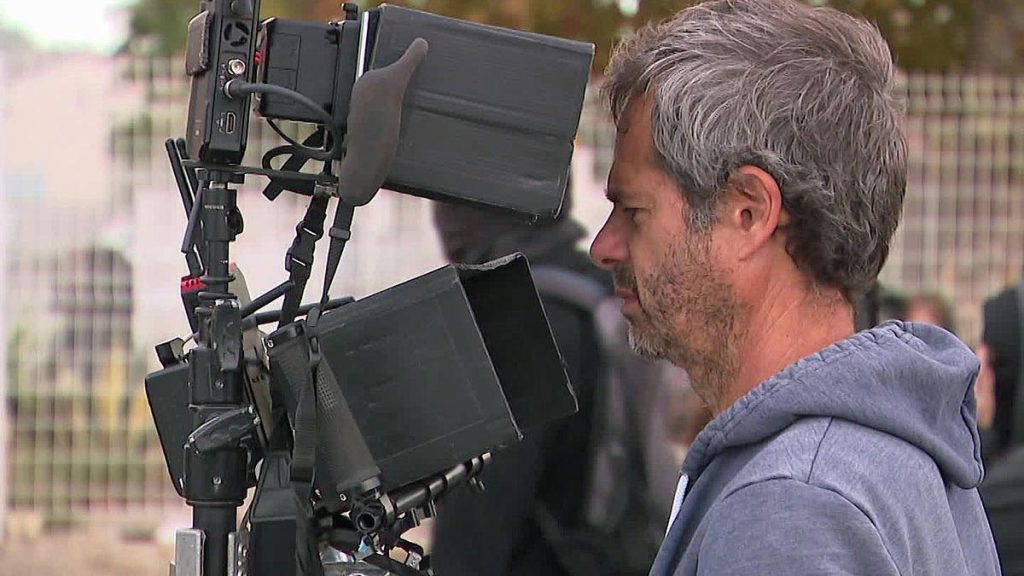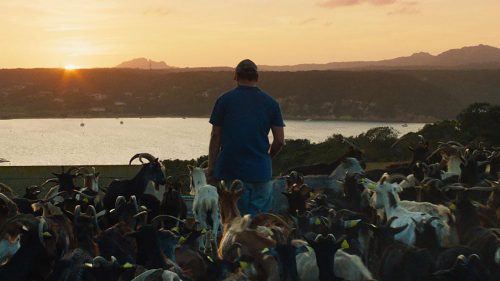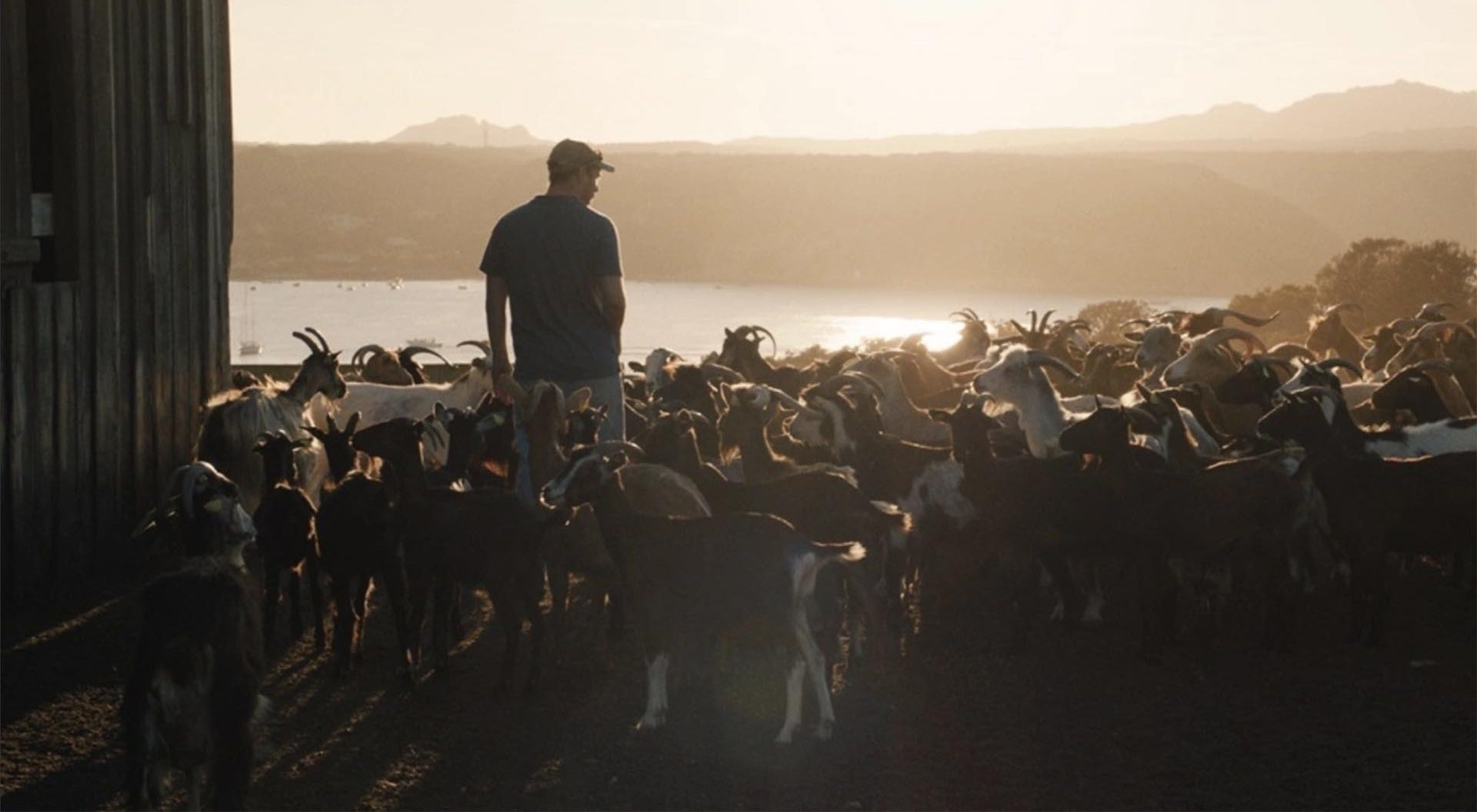
In his second feature film, Frédéric Farrucci presents in Horizons Extra The Mohican, a contemporary western with a strong political twist.
Can we define The Mohican as a hero movie?
I’ve never thought of my film in those terms. Joseph says ‘no’ (to certainly dangerous people) without bravade, justification, or political claim. He says ‘no’ because saying ‘yes’ would mean the end of his world. However, his situation is hopeless. After that ‘no,’ he spends most of his time running, hiding, and defending himself with makeshift weapons. If he is a hero, it’s certainly not in the Homeric sense, so to speak. That said, I must admit that he embodies a form of resistance that I personally admire, and I understand why it could be considered in that way. It’s also true that his niece, who strives to give Joseph’s action a political dimension, ends up giving him a certain aura of legend.”

One of the last remaining shepherds on the coast of Corsica, Joseph sees his land threatened by the shady building speculation plans of the local mafia. Even in the face of threats and intimidation, the shepherd chooses not to give in but to react decisively, becoming the targ...
Would it have been interesting for you to tell a story like this in a different setting? Or do you believe that your connection with Corsica cannot be replicated anywhere else?
I feel that when creating stories around situations and people intimately connected to a place, cinema offers me the opportunity to address universal issues. Consequently, I think I am more authentic when I speak about a territory to which I am viscerally linked, a place where I am not just an observer, but also a part of it. I believe this gives me a certain legitimacy to have a critical perspective on a political issue, and this makes me freer, more intuitive in my work. This is also closely connected to the fact that the film deals with a territorial conflict. I would be more inclined to film outside of Corsica if the films had less to do with this territorial dimension. My previous film, for example, is set in Paris, which for me is a second home, within the Chinese community, which was unfamiliar to me, but I felt the need to make it, and in a certain sense, I felt authorized to do so because migration issues deeply resonate with me.

Regarding the cast, how did you balance the mix of professional and non-professional actors? What factors influenced your choices?
The Mohican was born out of several encounters during the making of two documentaries – one about a shepherd, the central character of the film, and the other about a country veterinarian. The actors were naturally chosen around this real-life dimension. The veterinarian in question played himself, and the same goes for one of the shepherds seen in the final scenes. To find someone to portray Joseph, on whose shoulders the entire film rests, I felt the need to conduct a double casting process, both traditional and spontaneous, and with the casting director, we used the same approach for many other roles. Alexis Manenti, who is a professional actor and quite a city person, delivered an audition performance with such precision and intensity that I was immediately convinced he would be my shepherd. The other roles were filled by actors who seemed the most suited to the context and the territory. I balanced the presence of professional and non-professional actors depending on the scenes, thinking about and working on the meaning and dynamics of each one through trial and error. It was, moreover, fascinating to strive to distinguish between the actors who needed to work together beforehand and those for whom it was essential to preserve as much of the spontaneity of a real-life moment as possible.